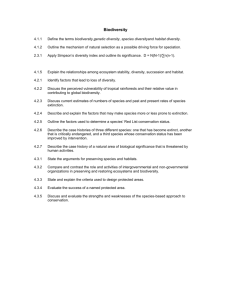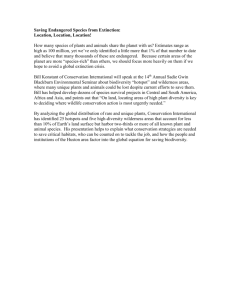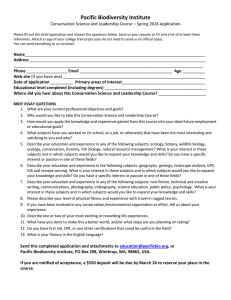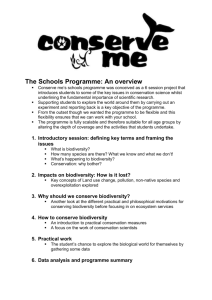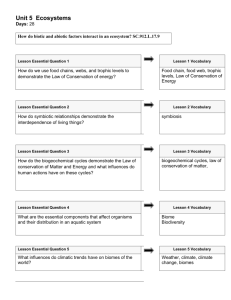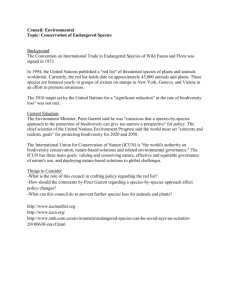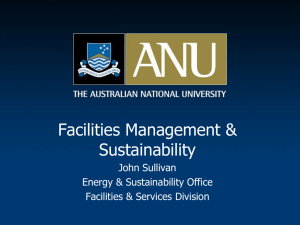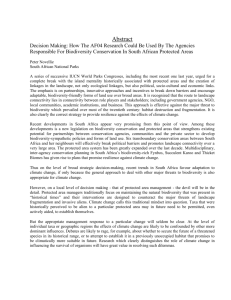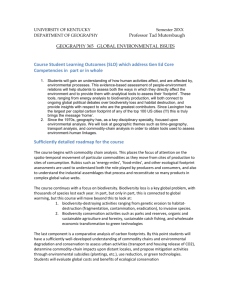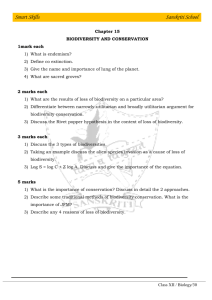Biodiversity conservation in social-ecological systems: “mapping
advertisement
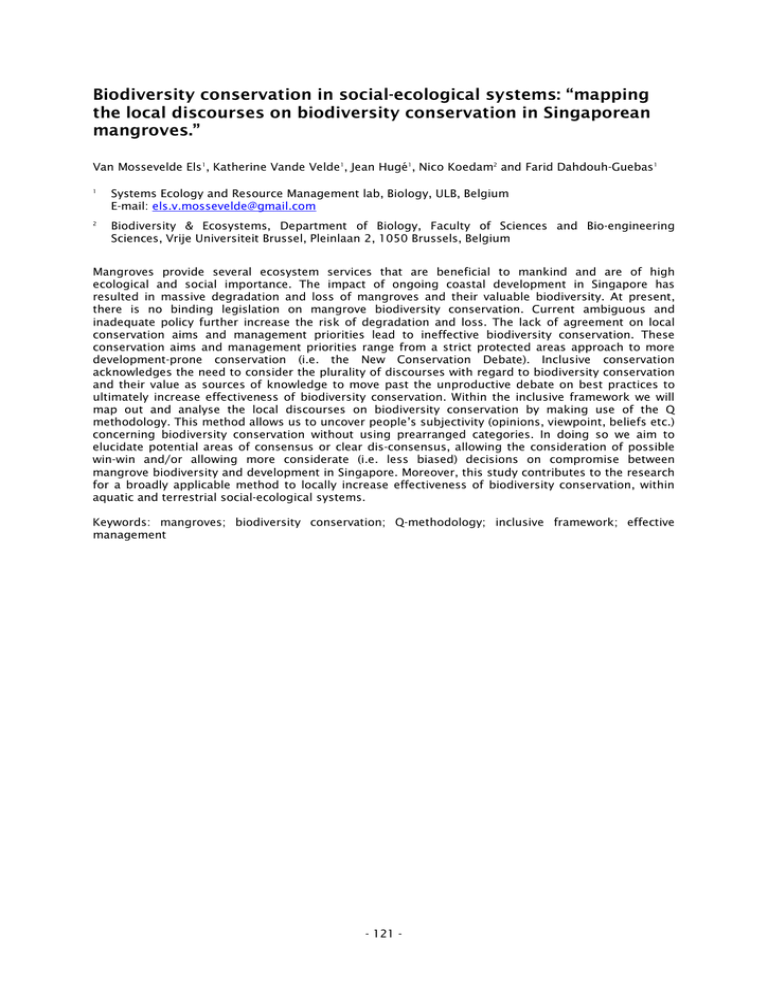
Biodiversity conservation in social-ecological systems: “mapping the local discourses on biodiversity conservation in Singaporean mangroves.” Van Mossevelde Els1, Katherine Vande Velde1, Jean Hugé1, Nico Koedam2 and Farid Dahdouh-Guebas1 1 Systems Ecology and Resource Management lab, Biology, ULB, Belgium E-mail: els.v.mossevelde@gmail.com 2 Biodiversity & Ecosystems, Department of Biology, Faculty of Sciences and Bio-engineering Sciences, Vrije Universiteit Brussel, Pleinlaan 2, 1050 Brussels, Belgium Mangroves provide several ecosystem services that are beneficial to mankind and are of high ecological and social importance. The impact of ongoing coastal development in Singapore has resulted in massive degradation and loss of mangroves and their valuable biodiversity. At present, there is no binding legislation on mangrove biodiversity conservation. Current ambiguous and inadequate policy further increase the risk of degradation and loss. The lack of agreement on local conservation aims and management priorities lead to ineffective biodiversity conservation. These conservation aims and management priorities range from a strict protected areas approach to more development-prone conservation (i.e. the New Conservation Debate). Inclusive conservation acknowledges the need to consider the plurality of discourses with regard to biodiversity conservation and their value as sources of knowledge to move past the unproductive debate on best practices to ultimately increase effectiveness of biodiversity conservation. Within the inclusive framework we will map out and analyse the local discourses on biodiversity conservation by making use of the Q methodology. This method allows us to uncover people’s subjectivity (opinions, viewpoint, beliefs etc.) concerning biodiversity conservation without using prearranged categories. In doing so we aim to elucidate potential areas of consensus or clear dis-consensus, allowing the consideration of possible win-win and/or allowing more considerate (i.e. less biased) decisions on compromise between mangrove biodiversity and development in Singapore. Moreover, this study contributes to the research for a broadly applicable method to locally increase effectiveness of biodiversity conservation, within aquatic and terrestrial social-ecological systems. Keywords: mangroves; biodiversity conservation; Q-methodology; inclusive framework; effective management - 121 -
